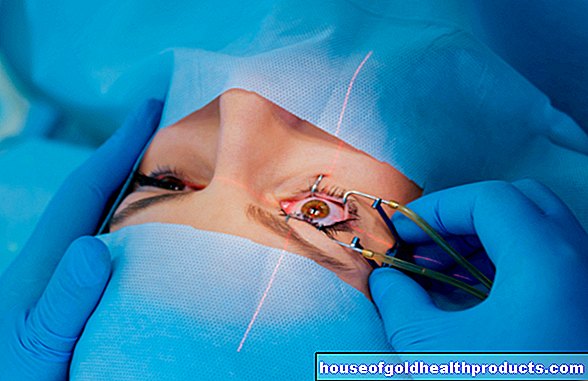Improve sperm quality
Nicole Wendler holds a PhD in biology in the field of oncology and immunology. As a medical editor, author and proofreader, she works for various publishers, for whom she presents complex and extensive medical issues in a simple, concise and logical manner.
More about the experts All content is checked by medical journalists.“How can I improve my sperm quality?” Is the question many men ask. The question becomes urgent, especially when the desire to have children is unfulfilled, if no, too few, too slow or malformed sperm are to be found in the seminal fluid. But can you actually improve the quality of sperm? Read here what harms sperm quality, how you can possibly stimulate sperm production and why sometimes only an operation can help.

What's wrong with the sperm?
If a man wants to improve his sperm quality, it must first be clarified what the problem with the sperm is. This can be determined with the help of a sperm examination: the sperm analysis produced provides information on the amount, vitality, mobility (motility) and appearance (morphology) of the sperm cells - all factors that are important for sperm quality. Using these parameters, doctors can assess the quality of sperm and ultimately the fertility of a man.
Basically: Sperm should be fast, move well, be well-formed and swim around in sufficient numbers. If one or more of these points is not met, sperm quality is poor and male fertility is impaired. Examples of pathological findings in the semen analysis:
- Oligozoospermia: The seminal fluid contains less than 20 million sperm cells per milliliter.
- Asthenozoospermia: There are not enough normally motile sperm in the ejaculate.
- Teratozoospermia: Too many sperm in the ejaculate are malformed, too little normal shape.
- Oligoasthenoteratozoospermia (OAT): At the same time there are too few sperm in the ejaculate, too few of them normally motile and too many of them malformed.
- Azoospermia: There are no sperm at all in the ejaculate.
In addition to the classic examination of the seminal fluid, there are vitality tests that help to distinguish intact or dead sperm cells or to check whether a sperm can make it through the uterine mucus. Different combinations of these methods then give a fairly accurate picture of the semen quality.
A mediocre semen analysis can definitely improve. Since the seminal fluid is always newly formed, the result is only a snapshot and can vary. It takes around three months for a sperm cell to mature, so you need a little patience if you want to improve your sperm quality. So it makes sense to have the sperm tested again after a few months. However, the more pronounced or serious the underlying disorder, the more difficult it is to improve the quality of the sperm.
What harms the sperm quality?
Numerous external factors are suspected of impairing male fertility, for example sauna, cycling, cell phone radiation or heated seats in the car. The data situation on this is inconsistent and the influence of each individual factor cannot be assessed unequivocally. If you want to improve the quality of sperm, you should still keep an eye on the following possible influencing factors:
temperature
The best production temperature for sperm is a few degrees below body temperature. The venous plexus of the testicles provides the necessary cooling. If the testicles are blocked in tight trousers or because of a lot of sitting, the cooling system may no longer function optimally. Even after a febrile illness, the spermiogram can be worse due to temperature.
way of life
An unhealthy lifestyle can affect the sperm analysis: Excessive consumption of nicotine, alcohol or drugs (marijuana) reduces the sperm count. Stress may also be harmful: if the stress hormone prolactin increases, this can disrupt sperm production. Obesity and poor nutrition are also suspected of impairing the functionality of the sperm cells.
Environmental influences and pollutants
Chemicals and pollutants that damage fertility include plasticizers and plant protection products (pesticides) as well as polychlorinated biphenyls, plant substances and hormones accumulated in the environment.
Medication
The intake of anabolic steroids to build muscle, but also antibiotics, antidepressants, blood pressure and gastrointestinal drugs have a negative influence on the quality of the sperm.
Illnesses & Injuries
Mumps or the resulting inflammation of the testicles (mumpsorchitis), chlamydial infection, bacteria in the ejaculate, congenital malformations (e.g. undescended testicles), hormone deficiency, genetic abnormalities (e.g. Klinefelter syndrome) and tumor diseases can result in poor sperm quality or block transport routes. The same goes for operations and injuries.
age
As with women, age is a limiting factor for fertility in men. From the age of 40, the quality of the semen decreases slowly, the sperm become slower, fewer and accumulate more chromosome damage or genetic defects.
Improve sperm: medication, vitamins and co
Food supplements, vitamin preparations and medication are supposed to stimulate sperm production, increase fertility and improve sperm quality. But what really helps?
Improve sperm quality with medication
Medicines can only improve poor sperm quality if a hormone deficiency (male hypogonadism), an underactive thyroid (increased prolactin) or a hormone-producing tumor (prolactinoma) impairs sperm formation or an infection restricts sperm transport.
Improve sperm quality with certain vital substances
Many vitamins and minerals are supposed to improve the quality of sperm, which is why those affected like to use the often advertised and expensive vital substances. All of these treatments are considered individual healing attempts and are not standard therapy. The following relationships exist:
- Zinc: marker for prostate function; If there is a zinc deficiency, the sperm use up their energy before they reach the egg cell.
- Antioxidants: bind free radicals, reduce oxidative stress; possibly better pregnancy rates with antioxidants.
- Coenzyme Q10: antioxidant effect, important for the energy supply of the cell; appears to increase sperm motility.
- Glutathione: important for the fusion of egg and sperm cells; Researchers found lower concentrations in the sperm cells of stressed men.
- Selenium: important for normal testicular development, sperm formation (spermatogenesis), mobility and function of the sperm.
- Folic acid: Deficiency seems to make sperm more susceptible to malformations.
For none of these substances (just as little as for omega-3, cartinine, vitamins C and D), the effectiveness in the treatment of male infertility has been proven beyond doubt. General therapy recommendations do not exist.
Improve sperm quality with Maca?
The maca plant (Lepidium meyenii), a medicinal plant from the Andes, is said to promote fertility and libido and improve sperm quality. You can buy it in this country as a tablet or powder. In a Peruvian study, the amount and mobility of sperm increased in men who had taken between 1.5 and 3 grams of MACA as a tablet every day for four months. Due to the limited amount of data, the Federal Institute for Risk Assessment cannot say how many maca-containing food supplements you can safely consume.
Improve sperm quality with Cordyceps medicinal mushroom?
The Chinese caterpillar mushroom Cordyceps sinensis from traditional Chinese medicine (TCM) is also said to improve sperm quality. However, there are no meaningful studies on the effectiveness of the medicinal mushroom, which is not classified as a medicinal product, in humans.
Improving sperm quality: tips
Especially with a mediocre sperm analysis, it is advisable to check your current lifestyle and try a few things. Perhaps this will allow you to improve sperm production and increase sperm count by the time you have the next examination.
The following tips may help improve sperm quality:
- at most moderate alcohol consumption
- Refrain from nicotine, drugs and anabolic steroids
- Check your medication intake and, if necessary, discontinue some preparations after consulting a doctor
- Diet rich in vitamins and minerals: lots of fruit, vegetables (from organic farming for lower pesticide exposure), whole grains, fish, nuts, low-fat foods
- Reduce overweight and underweight
- regular exercise (e.g. jogging, swimming)
- Reduce stress
- Avoid overheating the testicles
- Avoid contact with pollutants
Improving the quality of sperm can also be achieved with sex: about once or twice a week seems optimal. With longer intervals, the immune system breaks down the sperm cells, with too frequent ejaculation the amount of ejaculate decreases.
Improving sperm quality: surgery as the last option
The above tips can actually improve your sperm quality - but they are not a guarantee for an increase in fertility and fertility, especially not in the case of a severe disorder. In some cases, however, surgical intervention can help: If the vas deferens are blocked or severed, an operation (microsurgical re-fertilization) can improve the quality of the sperm.
But even if all that doesn't work: With today's reproductive medicine techniques, men have a good chance of conceiving a child, despite poor sperm quality. A potent sperm cell is theoretically enough. This can, for example, be surgically removed from the testicular tissue (TESE and MESA) and used for an ICSI. If none of the above measures could improve the sperm quality, you don't have to despair immediately.
Tags: healthy workplace organ systems Baby Child



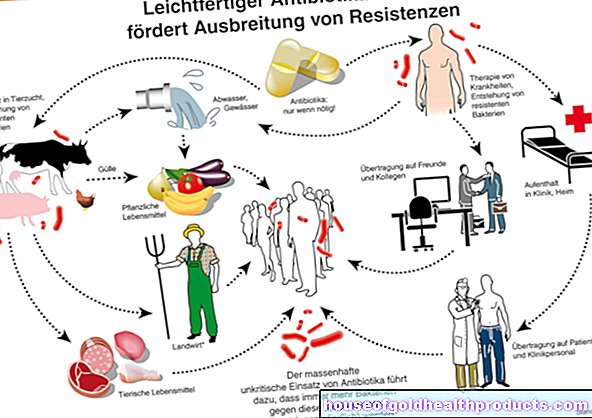
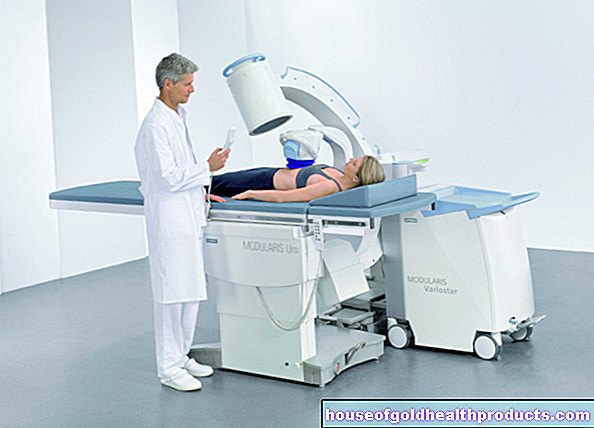
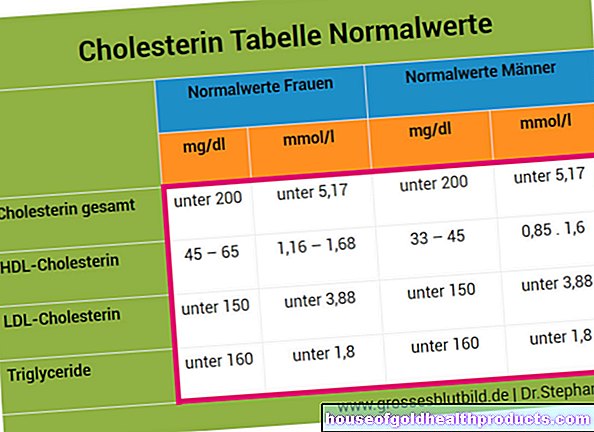


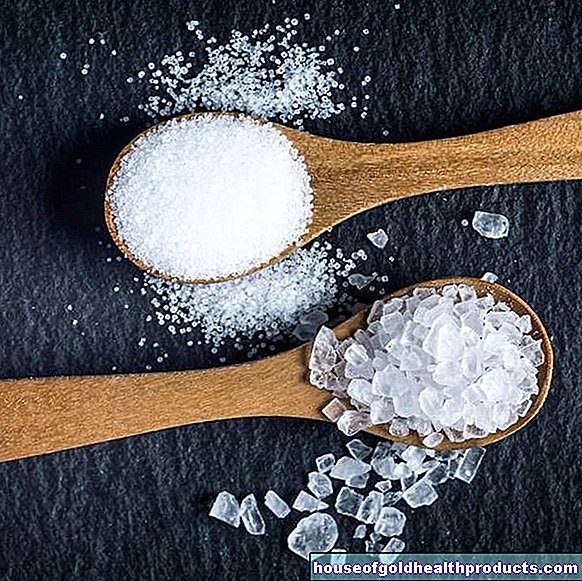
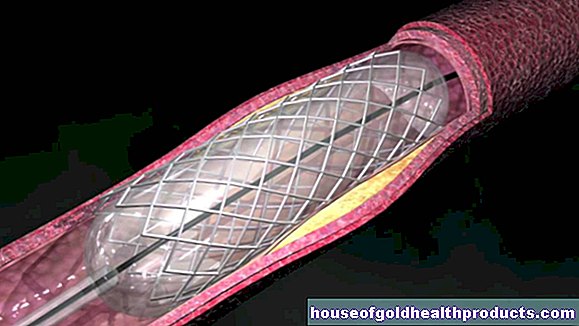

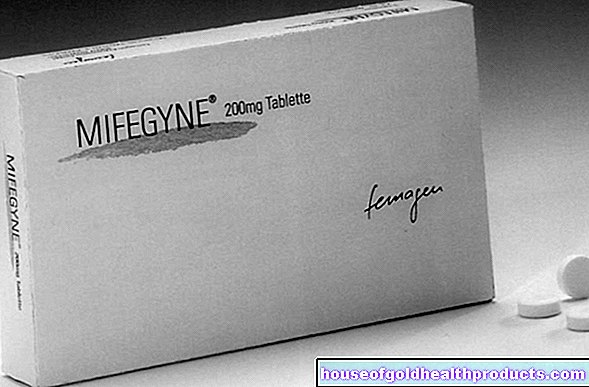


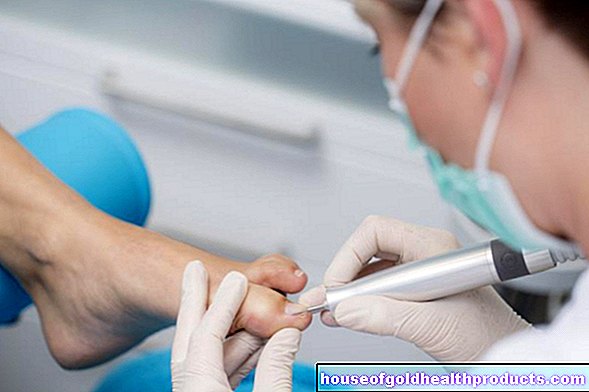
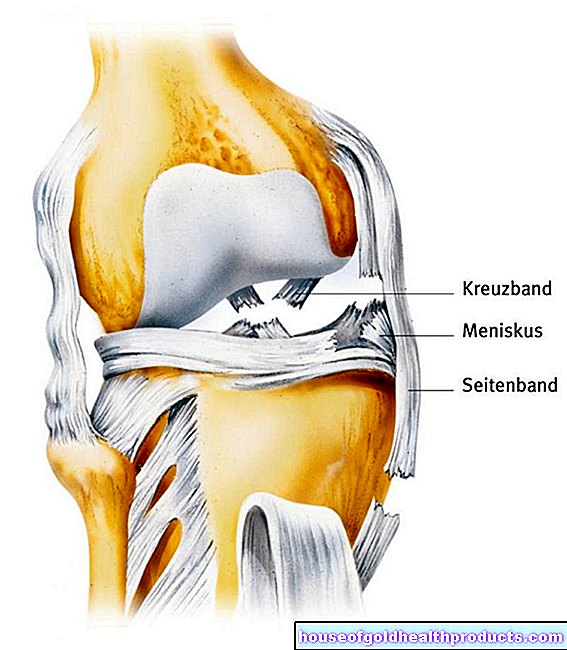

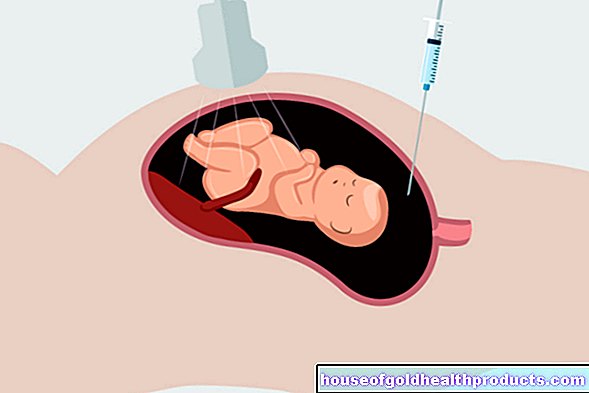
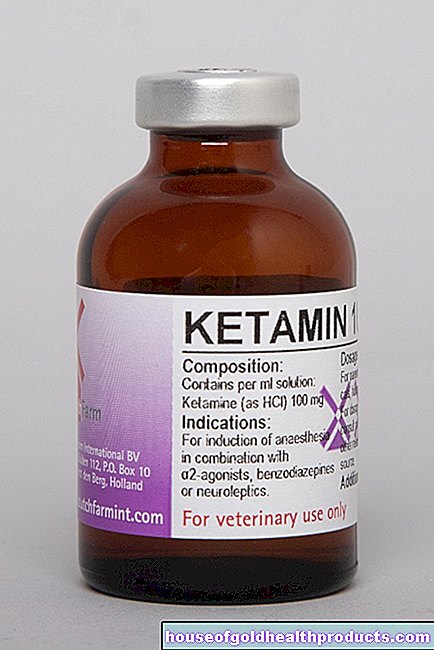

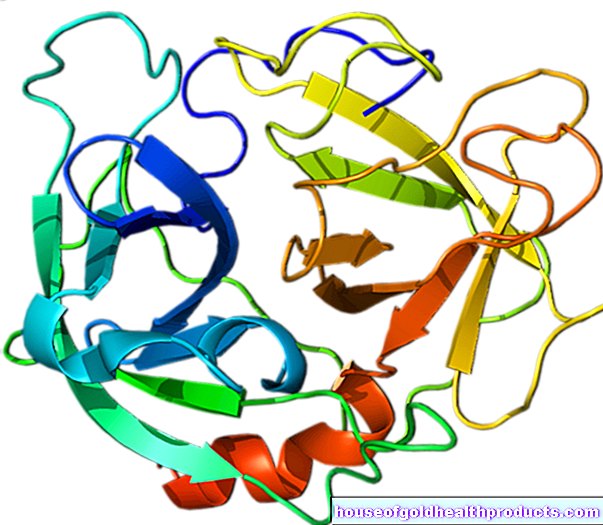
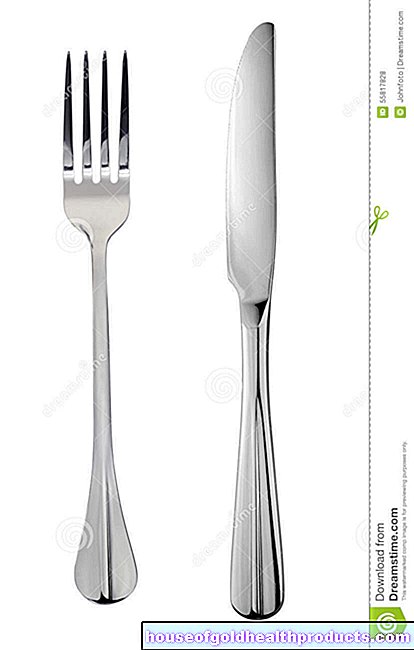



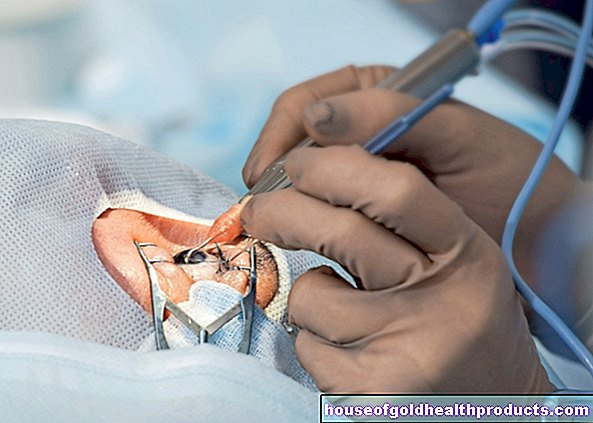

.jpg)

